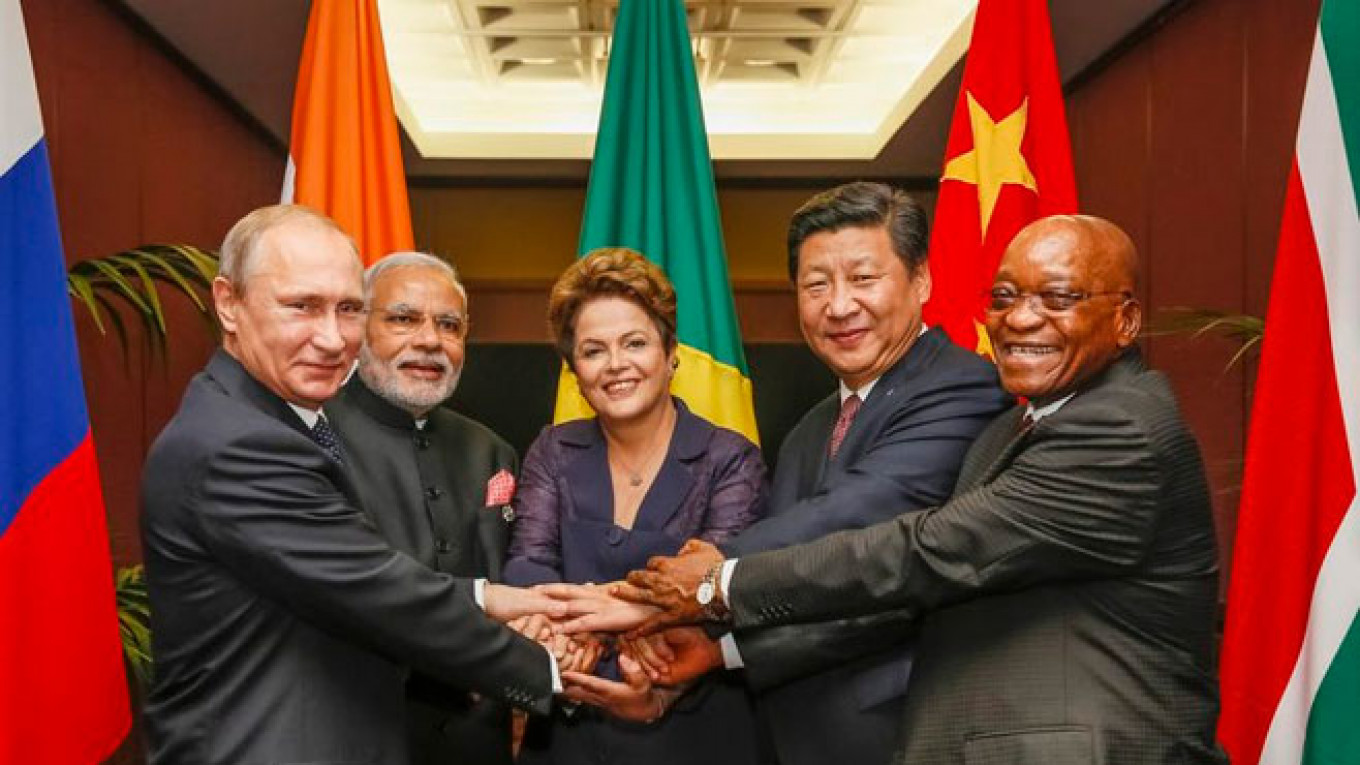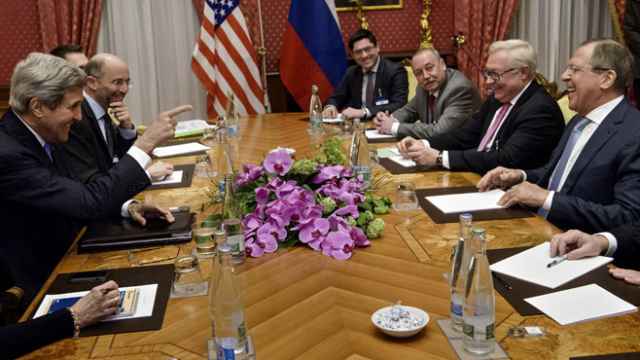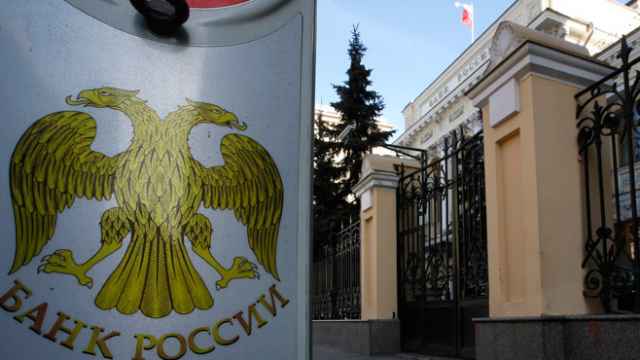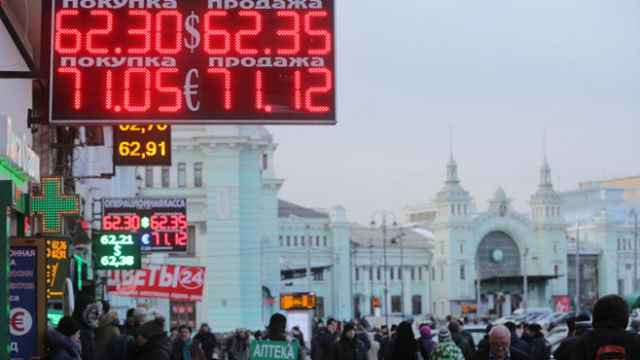The May 9 parade through Red Square traditionally celebrates the end of the Great Patriotic War and this year, being the 70th anniversary of the event, is particularly special.
This year's ceremony will also be special for another reason; it will very likely formally mark the end of Russia's two-decade-long active political engagement with the West and signal a new directional shift to the East and toward other developing nations. The group of world leaders reviewing the parade on Red Square this year will reflect that change.
The political reasons for the reset with the West are now well understood. While Western leaders continue to express frustration with Russia's actions, the Kremlin is equally frustrated with what it sees as a total disregard, if not actual disrespect, for Russia's national interests and concerns.
It is far too early to say that this will end in a bitterly contested divorce and long-lasting belligerency but, to cite the celebrity description, it is most certainly a "conscious de-coupling" by both sides.
For its part Russia is now dating again in Asia and among the world's other developing nations. Political ties with China have been deepening for all to see. Prime Minister Dmitry Medvedev's recent trip to Southeast Asia shows that Moscow wants to broaden relationships in the south rather than with Japan. Relations with Tokyo look set to remain as problematic as with the U.S. and the European Union given that country's ever closer ties with Washington.
Moscow is also obviously trying to build ties with developing nations in other parts of the world and this year's BRICS summit, which will take place in the Russian city of Ufa in July, will showcase the organization as becoming more solid, with growing ambitions. What started life as an investment banker's acronym is becoming a political force, certainly within the United Nations format, and an important economic bloc. Perhaps soon we may see a "T" added if Turkey is persuaded to participate formally.
The estrangement with the West also gave a fresh impetus to Moscow's efforts to make the Eurasian Economic Union (EEU) into a real economic block. Armenia joined the original three founders in January and Kyrgyzstan will join on May 1. Very likely Tajikistan and, eventually, Uzbekistan, will be added.
The EEU is still a fringe player and has many of the early stage problems to resolve as the European Economic Commission, which evolved into the current EU format, faced in its early years. But the EEU, standing alongside the BRICS and the expanding Sino-Russia relationship, forms part of a much more politically relevant and economically viable combination. Most, if not all, of the Central Asian leaders will be on the podium on May 9 for that reason.
But while the political angles are clear enough, what about the economics? On the face of it the numbers do make a compelling story. The World Bank's calculation of world gross domestic product based on purchasing power parity (PPP), shows that the volume of GDP in the BRICS nations was $32.6 trillion in 2013. That compares with GDP volume of $31.1 trillion for the top five developed nations.
But is it a good idea for Russia to shift investment and business partnerships away from the West to China or to the other BRICS nations? The headline GDP number is compelling but that's not what Russia needs. Most developing nations are competing for the sort of inward investment that Russia now needs, and, where external investment is available, it is primarily focused on enhancing the source rather than the target economy.
China has made clear that it is primarily interested in investing in two areas of the Russian economy: extractive industries and infrastructure. Specifically, Chinese companies are looking to acquire equity in projects that can help secure the China's materials supply sources.
China National Petroleum Corporation (CNPC) already owns a 20 percent stake in Russia's largest LNG project, in Yamal, the output from which will be shipped to Asia. China has also bought forward substantial oil deliveries and last year finally signed a major gas supply contract with Gazprom.
Officials in Beijing make no secret of the fact that they welcome the opportunity to improve the country's energy security, which has been afforded by the sanctions against Russia. China's appetite is far from satisfied and will be ready to write more checks if Russia's oil and gas companies need to sell additional equity to raise capital.
Beijing's other area of interest, which is also very evident across Central Asia, is in investing in infrastructure projects that can allow it faster and broader access to markets in Europe, the Middle East and Africa. Upgrading trans-Russia and trans-Kazakhstan's road and rail links is high on China's agenda.
But beyond extractive industries and transport links and, probably, trying to acquire ever more sophisticated military equipment, there doesn't seem to be much of an appetite to invest. A delegation of senior Russian bankers to China late last year came home empty handed.
Equally, from within the other BRICS nations, and among developing nations generally, there is little that can help Russia realize its ambition to return to a higher level of sustainable growth and to create a more diversified economy. Certainly the country can diversify the sourcing of some products, such as in the food categories, but relatively little else.
The problem is that, from an economic and investment point of view, Russia is engaging with other developing nations, i.e. countries that have almost the same need to grow. But that growth can only happen by creating a more conducive investment climate and by working with experienced companies that have skill sets and technology. Those companies are located in the Western developed nations.
Most people are aware that Russia's economic growth started to slow from mid-2012 as the previous drivers of headline growth, i.e. mostly the consumer industries, slowed due to a combination of factors that were unsustainable. Partly it was the base-effect, i.e. growth in an economy valued at $2 trillion (2012) is harder than when GDP totaled only $200 million (1999), and partly it was because the economy could not continue to afford double-digit nominal pay increases year after year.
As we know, headline growth slowed to only 1.3 percent in 2013 even though the price of oil averaged close to $110 per barrel and sanctions had not yet appeared. The old model had become exhausted and a new investment model was needed. The events of the past 15 months show that need to be even greater today and this realization is what is behind the government's import-substitution, or localization, drive. For that to work the country needs the involvement of experienced companies, either directly or in partnership.
Thankfully, and so far, that message appears to be well understood at the top of government. Many events of last year would surely have turned out differently if nobody cared about retaining Western expertise in the Russian economy.
Chris Weafer is a senior partner with Macro Advisory, a consultancy advising macro hedge funds and foreign companies looking at investment opportunities in Russia.
A Message from The Moscow Times:
Dear readers,
We are facing unprecedented challenges. Russia's Prosecutor General's Office has designated The Moscow Times as an "undesirable" organization, criminalizing our work and putting our staff at risk of prosecution. This follows our earlier unjust labeling as a "foreign agent."
These actions are direct attempts to silence independent journalism in Russia. The authorities claim our work "discredits the decisions of the Russian leadership." We see things differently: we strive to provide accurate, unbiased reporting on Russia.
We, the journalists of The Moscow Times, refuse to be silenced. But to continue our work, we need your help.
Your support, no matter how small, makes a world of difference. If you can, please support us monthly starting from just $2. It's quick to set up, and every contribution makes a significant impact.
By supporting The Moscow Times, you're defending open, independent journalism in the face of repression. Thank you for standing with us.
Remind me later.








